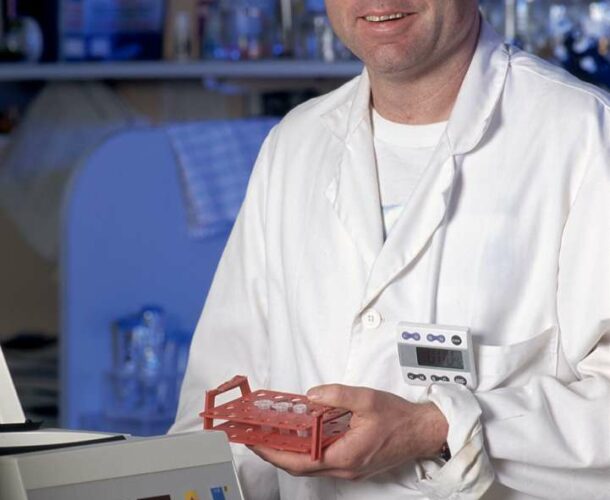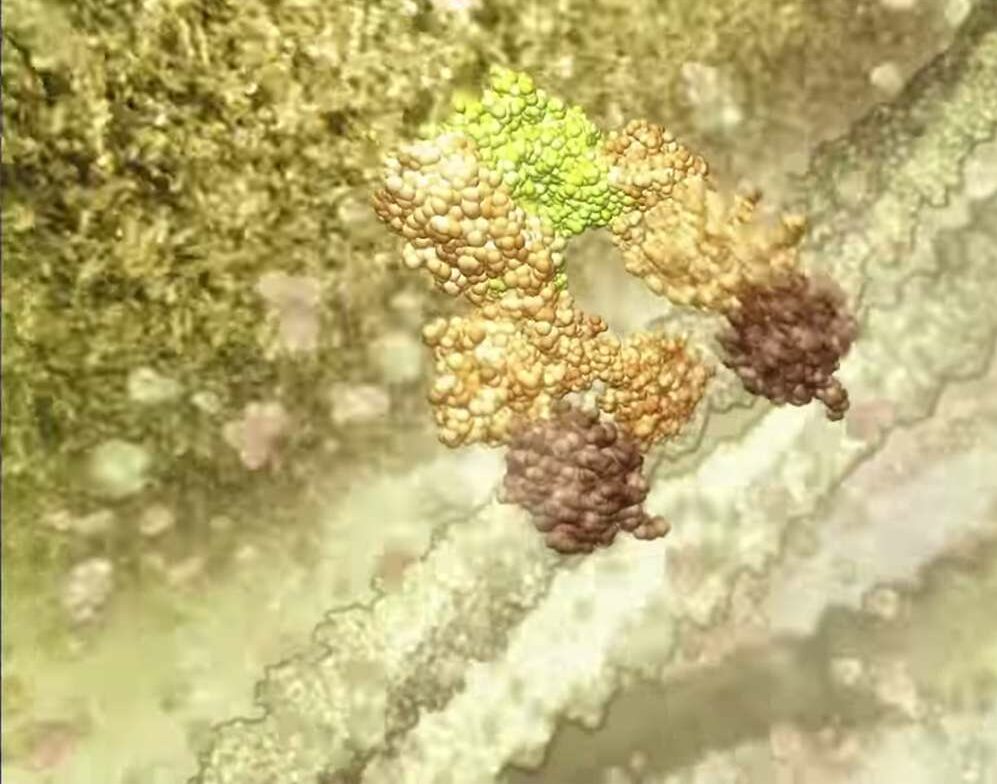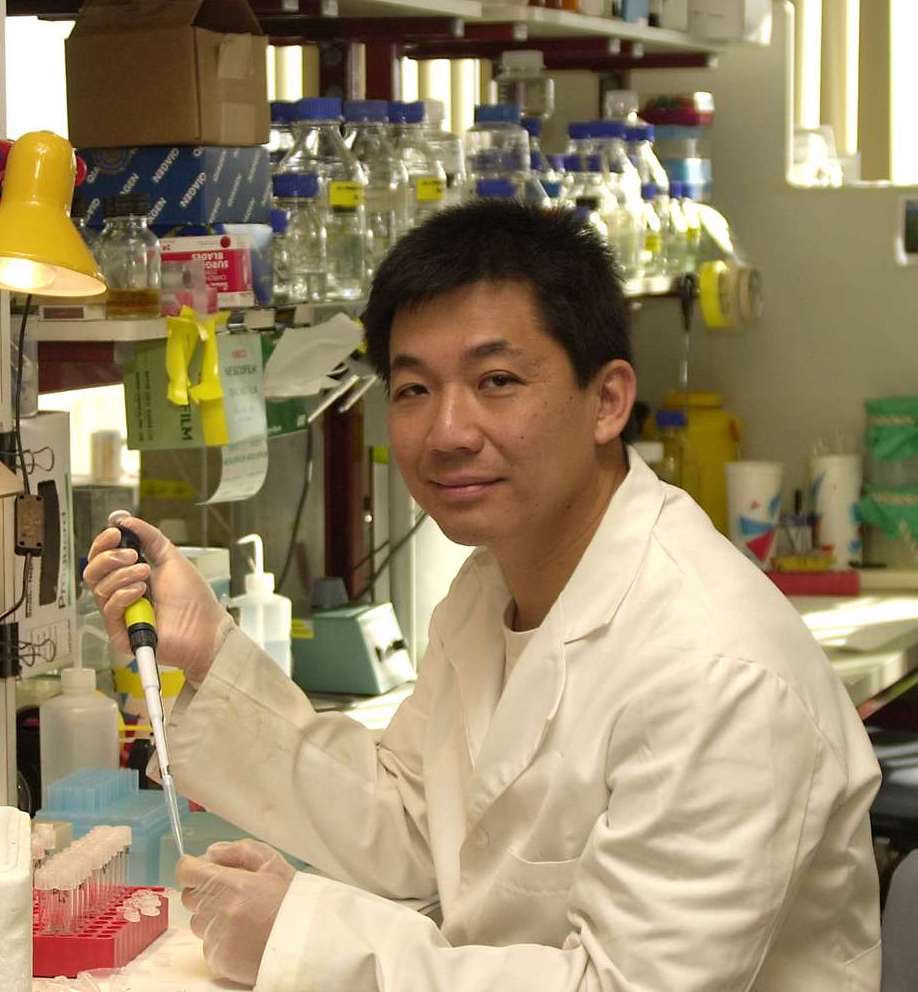Following Professor David Vaux’s 1988 discovery that the protein Bcl-2 prevents cells in tissue culture from dying, Professor Andreas Strasser investigates the effect of promotion of lymphocyte survival by Bcl-2 in vivo. He discovers that preventing the death of antibody-producing B cells can trigger an autoimmune disease similar to lupus
Preventing death
Bcl-2 blocks the molecular signals that tell a cell to kill itself when it is no longer needed.
Using transgenic mice created by Dr Sue Bath and Vaux, Strasser and colleagues studied the effects of inhibition of B lymphocyte death by Bcl-2 in vivo. Instead of auto-reactive cells dying, which ensures immune “tolerance” in accordance with Sir Frank Macfarlane Burnet’s theory, Bcl-2 kept auto-reactive cells alive, so they can attack tissues to cause a disease similar to lupus.
Recollection: ‘The Saga of Apoptosis’
“David Vaux initiated a fascinating line of work with another gene, Bcl-2, associated with a human malignancy, follicular lymphoma. Using a viral vector, this gene could be inserted into various kinds of bone marrow-derived cells. This maneuver converted cells that absolutely required growth factors for survival in the test tube into cells that continued to live even without growth factor. In other words, Bcl-2 had delivered a powerful anti-cell death signal.
“Next, Bcl-2 turned out not to be a strong oncogene when inserted by itself. Rather, as Andreas Strasser and colleagues discovered in 1990, such mice showed unduly prolonged antibody production after immunisation. The antibody-forming cells just refused to die!
A striking observation was that many of these mice developed a disease resembling human systemic lupus erythematosus. Apparently what had happened was that the death of self-reactive cells (which as we have seen is a part of normal immunological tolerance) had been prevented by the ‘anti-cell death’ gene.”1
1. Nossal GJV (2007) Diversity and Discovery: The History of the Walter and Eliza Hall Institute 1965–1996. Melbourne: The Miegunyah Press..






